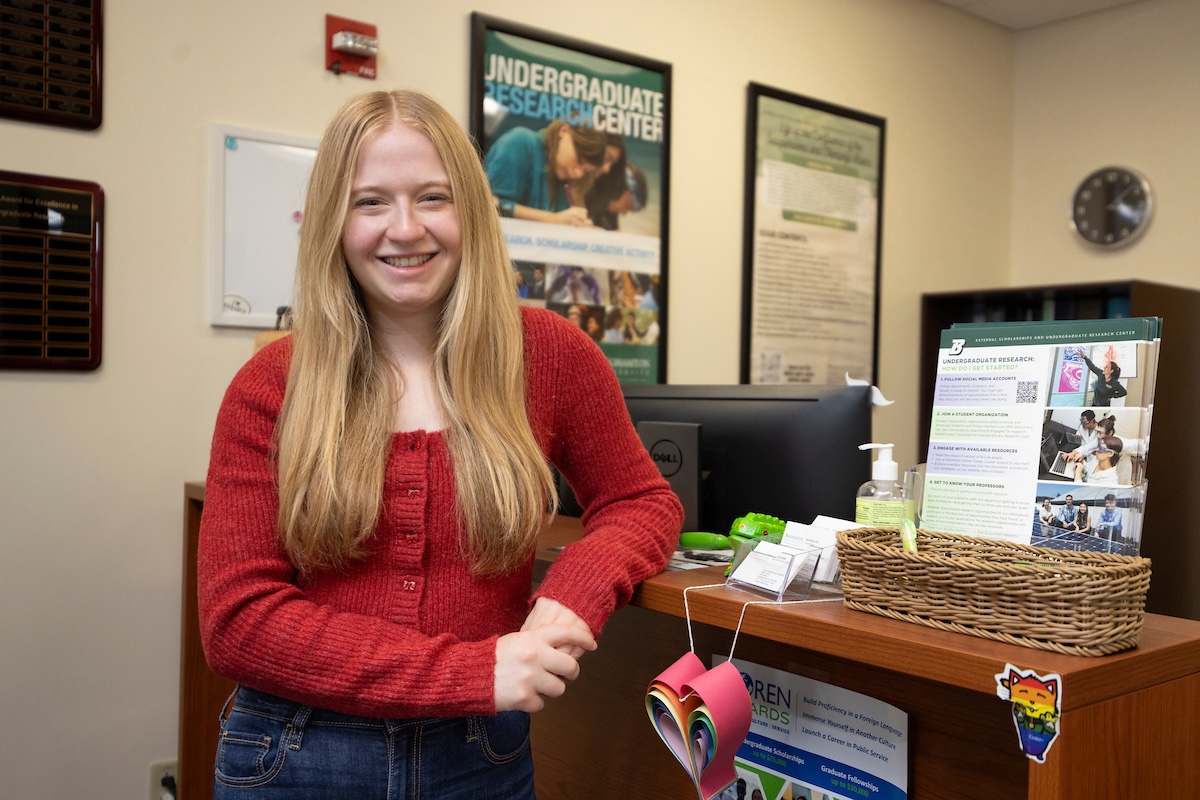Extra, extra! Special edition of Undergraduate Research Journal to focus on disinformation
Edition’s peer-reviewed research originates in the Source Project

With the rise of social media and political discourse about “fake news,” disinformation has been a hot topic in recent years.
The theme is featured in a special edition of the Binghamton University Undergraduate Research Journal, now available online here. Formerly known as Alpenglow, the annual journal publishes original research and creative work by undergraduate students.
“It gives students the ability to get the experience of real academic publishing and what that process is like,” explained Lia Richter, a senior double-majoring in history and economics, and the journal’s managing editor.
The upcoming special edition features research from Associate Professor of Russian Studies Sidney Dement’s Source Project stream in disinformation and naiveté. Offered via the External Scholarships and Undergraduate Research Center, the Source Project provides first-year students with an immersion in humanities and social sciences research.
The disinformation stream ran in 2022 and 2023, a span that included the Russian invasion of Ukraine.
“Putin’s speech the morning of the invasion was full of what we had been studying in terms of disinformation, what it is and how it’s used,” Dement recalled. “It was also timely in what was happening in the American discourse about media, and what some people called ‘fake news.’”
Getting published
Students must have a faculty member sponsor their work, which is submitted to the journal through an online portal. The editorial board, which consists of the editor and center staff, then sees if the submission meets the journal requirements. If accepted, students will go through multiple rounds of review and revisions from students and faculty members. Most of this process is done blind.
Richter is the second undergraduate to serve as managing editor; prior to her predecessor, the role was filled by graduate students.
Dement had 20 students in his first cohort and 15 in the second, resulting in a research community of 35 students. Those interested in more research were given the opportunity to develop their papers further; some took a third semester in the Source Project Colloquium to do so, while others returned to their projects with fresh eyes after a year or two, he said.
The seven papers in this special edition reveal the breadth of the range of topics that students pursued in the Disinformation and Naiveté stream. Topics include:
- The psychology behind the Pepe the Frog meme
- The role of the 1980s “welfare queen” stereotype in eroding empathy
- A theory in political science known as the bargaining model and its application to three examples in Russian history
- The Reid technique of interrogation used by police and its link to false confessions
- The epistemic crisis in the wake of the Sept. 11 terrorist attacks
- A case study of Ann Cooper Hewitt, who was sterilized against her will in the 1930s, and
- The interplay of disinformation and satire connected with an anti-Semitic cartoon published in the Soviet Union.
The journal is fully searchable online, with readership from around the world, including the students themselves and their friends and family.
“An undergraduate publication is a wonderful way to share what you’re learning and how you’re growing as an undergraduate student with people close to you,” Dement said.
Professors, too, find value in reading undergraduate work. These papers are often accessible to the lay reader because the writers are closer to the general audience than someone who has been thinking or writing about these topics professionally for 10 years or more, he pointed out. High-quality undergraduate research can also help professors gauge what’s possible for their own students.
And the articles are just plain interesting and full of contemporary relevance, he added. After all, disinformation isn’t just a modern phenomenon limited to social media or the Internet.
“The truth is that people have manipulated the truth to achieve selfish or harmful ambitions for as long as we’ve been around,” Dement said. “Thinking about it through that lens provides a lot of important context.”

